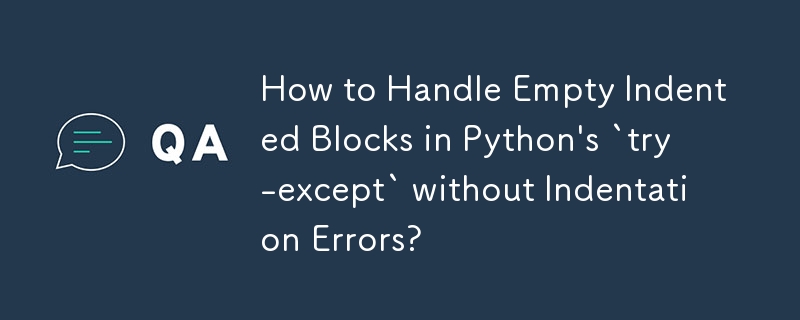Home >Backend Development >Python Tutorial >How to Handle Empty Indented Blocks in Python's `try-except` without Indentation Errors?
How to Handle Empty Indented Blocks in Python's `try-except` without Indentation Errors?
- Mary-Kate OlsenOriginal
- 2024-11-08 06:28:021001browse

Writing an Empty Indented Block in Python without Indentation Errors
When working with code structured in try-except blocks, it is common to encounter the error message "expected an indented block" when there is nothing to execute within the except block. This can occur in scenarios where the intention is to simply catch and ignore the exception. How can we circumvent this issue in Python?
To resolve this, Python provides a concise and effective solution: the pass statement. This statement acts as a placeholder, allowing you to define an empty indented block. By placing pass within the except block, the code executes without performing any actions and gracefully handles the exception.
Consider the following example:
try:
# Do something illegal.
...
except:
# Pretend nothing happened.
pass
Here, the pass statement within the except block serves as a placeholder, preventing the "expected an indented block" error. It effectively absorbs the exception and allows the code to continue execution without affecting its behavior.
While the pass statement provides a convenient solution, it is essential to note that silently swallowing exceptions can be detrimental in many situations. When using this approach, it is crucial to identify and handle exceptions appropriately.
The above is the detailed content of How to Handle Empty Indented Blocks in Python's `try-except` without Indentation Errors?. For more information, please follow other related articles on the PHP Chinese website!

